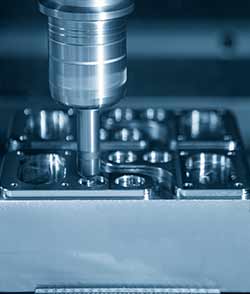Demystifying the Classification of CNC Machine Tools
In the ever-evolving landscape of manufacturing, Computer Numerical Control (CNC) machine tools have become a driving force behind precision and efficiency. Among renowned brands in the industry, Sealion stands out as a pioneer in developing cutting-edge CNC machines. This blog aims to delve into the fascinating world of CNC machine tool classification, with a specific focus on Sealion's innovative technology. By understanding the various types of CNC machine tools available, manufacturers can make informed decisions to optimize their production processes.
Exploring the Classification of CNC Machine Tools
The classification of CNC machine tools is a crucial aspect in understanding their capabilities and applications. Broadly speaking, CNC machines can be categorized into three main types based on their functions: milling machines, lathes, and drills.
Milling Machines:
Milling machines utilize rotary cutting tools to remove material from workpieces, resulting in precision-crafted components. These machines are often employed in industries such as automotive, aerospace, and manufacturing. Sealion's milling machines are renowned for their state-of-the-art technology, unmatched accuracy, and versatility.
Lathes:
Lathes, on the other hand, are primarily used for turning, facing, and threading operations. Sealion's range of CNC lathes offers excellent control over rotational speed and cutting depth, allowing for the creation of intricate and symmetrical parts with utmost precision.
Drills:
Drilling machines, as the name suggests, are tailored for drilling holes into various materials. Sealion's CNC drilling machines offer high-speed capabilities and exceptional precision, enabling manufacturers to accomplish tasks accurately and efficiently.
Sealion's Innovative Approach to CNC Machine Tools
Sealion's commitment to innovation has resulted in the development of cutting-edge CNC machine tools that address the ever-growing demands of modern industries. Their machines incorporate advanced technologies, ensuring high precision, reliability, and increased productivity.
One of Sealion's notable advancements is the integration of Artificial Intelligence (AI) in their CNC machines. This AI-powered technology allows for real-time data analysis, adaptive control, and automated adjustments, enhancing overall efficiency and minimizing errors.
Furthermore, Sealion places a strong emphasis on user-friendly interfaces, making their CNC machines accessible to operators with varying levels of expertise. Intuitive control panels and software interfaces simplify machine operation and reduce the learning curve, contributing to improved productivity and reduced downtime.
The Future of CNC Machine Tools: Sealion's Vision
As industries continue to evolve, Sealion remains at the forefront of innovation, driving the future of CNC machine tools. The company's research and development efforts are centered around three core aspects:
Integration of Internet of Things (IoT):
Sealion envisions a seamless integration of their CNC machine tools with IoT capabilities. This integration will enable remote monitoring, predictive maintenance, and real-time performance analysis, leading to improved operational efficiency and reduced downtime.
Enhanced Customization and Adaptability:
In response to diverse manufacturing needs, Sealion aims to develop CNC machines that offer enhanced customization and adaptability. This will allow manufacturers to optimize their production processes and stay ahead in the highly competitive market.
Focus on Sustainability:
Understanding the importance of sustainability, Sealion aims to develop environmentally-friendly CNC machines. These machines will prioritize energy efficiency, waste reduction, and the use of recyclable materials, contributing to a greener future.
Sealion's dedication to pushing the boundaries of CNC machine tool technology is evident through their innovative designs and integration of advanced features. By exploring the classification of CNC machine tools and understanding Sealion's vision for the future, manufacturers can stay well-informed about the latest developments in the industry. Classifying CNC machines into milling machines, lathes, and drills provides a solid foundation for manufacturers to identify the most suitable tools for their specific requirements, ultimately boosting productivity and ensuring precision in their production processes.
-

Selection Steps of Special Liquid for CNC Machining Center
The point of selecting the special liquid for the CNC machining center is to select its antirust property, and the general lubricity and cleaning property can basically meet the requirements.However, ... -

Reduce Machine Tool Standby Time To Improve Equipment Energy Efficiency
Because of the increasing cost of energy, the energy consumption of machine tools has attracted more and more attention. By so far, the peripheral equipment and auxiliary facilities of the equipment ... -

Vertical Lathe Manufacturers: Vertical Lathe Production and Processing is an Ideal High-efficiency Machine Tool for the Production and Processing Industry Chain
The vertical lathe has compact processing structure, beautiful appearance, easy operation, low material consumption, low cost of cutting blades, and convenient maintenance, which is an ideal high-effi...





